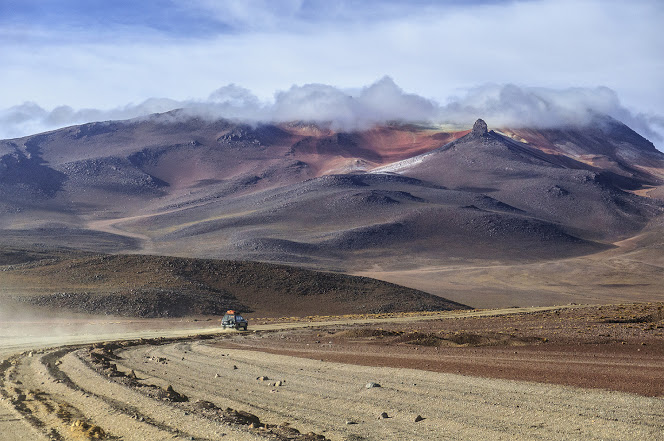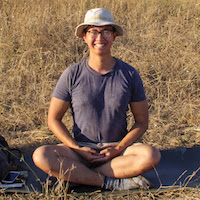
Coming home from our travels—long or short—hits each of us in different ways.
Yet, many of us share a sense of ennui upon the conclusion of our trips, at least temporarily. We feel listless and weary, unable to take interest in our normal lives.
Without the stimuli of new sights and experiences that travel brings, the humdrum of our daily routines feels more jarring. Hence, the ennui.
But it needn’t be this way.
The more I think about it, the more I believe there is no reason to feel miserable when our travels end. If we have traveled with presence, our engagement with a country or place will not stop once we leave.
In other words, we shouldn’t view coming home as a break between being there and being here. Rather, it is bringing the “there” to “here.” The journey home provides a wonderful space for us to reflect on what our presence overseas meant, as well as to consider new ways of being present at home.
Although physically we are no longer present in the places where we traveled, our memories of those places live on within us. Every time we rekindle those memories, we relive our travels. In the process, depending on our circumstances at that point in time, the significance of those trips may change.
When I came back from a volunteering trip to the Galápagos Islands in Ecuador three years ago, my first thoughts went something like this: “I’m so cool; no one I know has ever been there.” Then, as I read more about the ill effects of “voluntourism,” I began to think and speak of my trip to the Galápagos as one primarily motivated by selfish concerns.
Even later, when I became acquainted with meditation and the concept of mindfulness, I emphasized the tranquillity evoked by doing repetitive, menial work—in this case, spending hours day after day cutting down invasive plants.
The inevitable changes in our perceptions of our time abroad are part of the travel experience. They form the emotional evolution that accompanies our physical journeys. Travel, after all, is simply movement—a movement not only across space and time, but also among different moods and feelings.
By constantly rethinking what our travels mean to us, we ensure they never actually end.
At the same time, although we often don’t recognize it, our travels will continue to exert an influence on our daily lives back home. For one, reading or watching the news resonates more for me now when news reports involve places that I’ve visited. Old memories may be triggered, or I may feel greater compassion for the people affected by a particular piece of news.
For instance, whenever I read about the series of terror attacks in Turkey over the past year, I feel a strong sense of violation. Turkey is so familiar to me that every terror attack there feels like one in my own home. I have been to many of the places that were bombed, enough to feel a similar fear and outrage as my Turkish friends.
On a more positive note, traveling has also encouraged me to learn more about the places I’ve visited. After an eye-opening visit to Iran two years ago, I began to choose topics related to Iran in my college research papers, just so that I could read more about the country. Similarly, after a recent visit to Colombia, I cannot wait to get my hands on Gabriel García Márquez’s novels. Márquez is Colombia’s only Nobel laureate for literature, and many of his works draw from his experiences growing up in the country.
Perhaps, coming home simply indicates that we have swapped our physical presence in a place for an all-embracing sense of curiosity toward it. In this regard, the end of our travels represents more than just a departure. It marks the beginning of an eagerness to find out more about a place and its people, even from an ocean or two away.
Most importantly, however, traveling opens up possibilities for more new connections in our daily lives. Thanks to technology and social media, it is far easier today to keep in touch with the people we meet abroad. Even the Kyrgyz man who hosted me in a remote village deep within the Pamir mountains of Tajikistan can say hello to me regularly via Whatsapp!
At the same time, our travels also help us connect with people back home, too, be it by sharing stories with friends and family, or even saying hello to foreigners visiting or working in our cities.
Once, I even found out that my Uber driver was from Turkey and proceeded to try out my Turkish with him. After a while, he suddenly turned off the Uber app on his phone and said that he was going to give me the rest of the ride for free. I realized there and then that the serendipity we so often associate with travel can continue even after we return home.
Ultimately, when our travels end, we can’t help but lament that the rich sensations and emotions we encountered have become mere memories, destined to fade away. Yet, we should realize that we can bring these memories back to life in different ways, even after the completion of our physical journeys.
After all, the relationship between experience and memory is a circular one. Our travel experiences do not simply sink into the depths of our memories. We can continually engage with them, creating new experiences.
This is why traveling never really ends, even after returning home. It simply takes on a different form.
~
Author: Eugene Ang
Photos: Author’s Own
Apprentice Editor: Bretton Keating; Editor: Toby Israel
~






Read 0 comments and reply